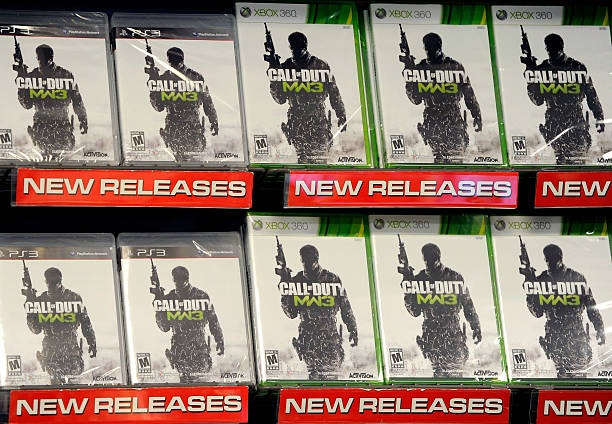Microsoft’s proposed acquisition of Activision Blizzard has been met with considerable controversy, and Sony is among the parties who have raised concerns about the deal. Sony has recently submitted documents to the UK’s Competition and Markets Authority (CMA) in which the company appears anxious about Microsoft potentially taking control of Call of Duty, and the effect this could have on the PlayStation console.
The Proposed Acquisition
The proposed acquisition of Activision Blizzard by Microsoft is worth $69 billion, and it has been in the works for the past 12 months. However, the merger has faced opposition from regulators, government bodies, and rival companies across the globe.
One of the concerns that has been expressed is that, if the deal were to go through, Microsoft would be given too much power over the gaming industry. Xbox executives and lawyers have been attempting to convince regulators that the acquisition would have no negative repercussions, but some parties, including Sony, are not convinced.
Sony’s Worries
In an effort to appease regulators, Xbox has been trying to secure deals that would keep Call of Duty on PlayStation consoles. Last month, Microsoft struck a similar deal with Nintendo. However, Sony still has concerns that Microsoft could find ways to circumvent any deals it signs.
A new document submitted by Sony to the CMA outlines its fears, suggesting that Microsoft could raise the price on future Call of Duty games or release a buggier version of the game on PlayStation consoles. Sony is concerned that such behavior could lead to PlayStation gamers choosing to buy Call of Duty on Xbox in the future.
Sony doesn’t go as far as to say that Microsoft and Activision would purposely release a buggier port of Call of Duty on PlayStation consoles. However, the company believes that Microsoft could still harm the PlayStation brand through its control of Call of Duty, even if a fair deal were to be agreed upon and approved by regulators.
Microsoft’s Response
Kotaku contacted Microsoft and Activision for comment on Sony’s concerns. Microsoft responded by referring the publication to section 3.11 of the company’s own response to the CMA:
“By ensuring parity between Sony, as the largest console platform, and Microsoft, the proposed remedy will ensure that CoD is, in fact, made available on “equal terms” (which has not been the case for the past 20 years), benefitting Xbox and PC gamers, as well as PlayStation gamers. Moreover, the proposed remedy will allow Sony to place CoD in its own subscription service PlayStation Plus.”
The company has also provided the following statement:
“Since the CMA issued its Provisional Findings, we have offered solutions which address its concerns and increase the deal’s benefits to UK players and game developers. These include a guarantee of parity between Xbox and PlayStation on access to Call of Duty and legally binding commitments to ensure that Call of Duty is available to at least 150 million more players on other consoles and cloud streaming platforms once the deal closes.”
Microsoft has stated that the solutions offered are legally binding, and that the company’s player community would hold Microsoft accountable for keeping its promises. The company asserts that the proposed acquisition will allow for the creation and distribution of more incredible games that can reach more people across different platforms, including console, PC, cloud, and mobile.
The Wrap-Up
The proposed acquisition of Activision Blizzard by Microsoft has faced considerable opposition from regulators and rival companies, with Sony being among the parties who are concerned about the deal. In new documents that Sony has submitted to the CMA, the company has expressed fears that Microsoft could circumvent any deals that are made and take actions that harm the PlayStation brand.
Microsoft has responded by stating that it is offering legally binding commitments to ensure that Call of Duty is available to at least 150 million more players on other consoles and cloud streaming platforms after the acquisition is completed. The CMA will consider these matters in the coming weeks and determine whether the proposed acquisition can go forward.


